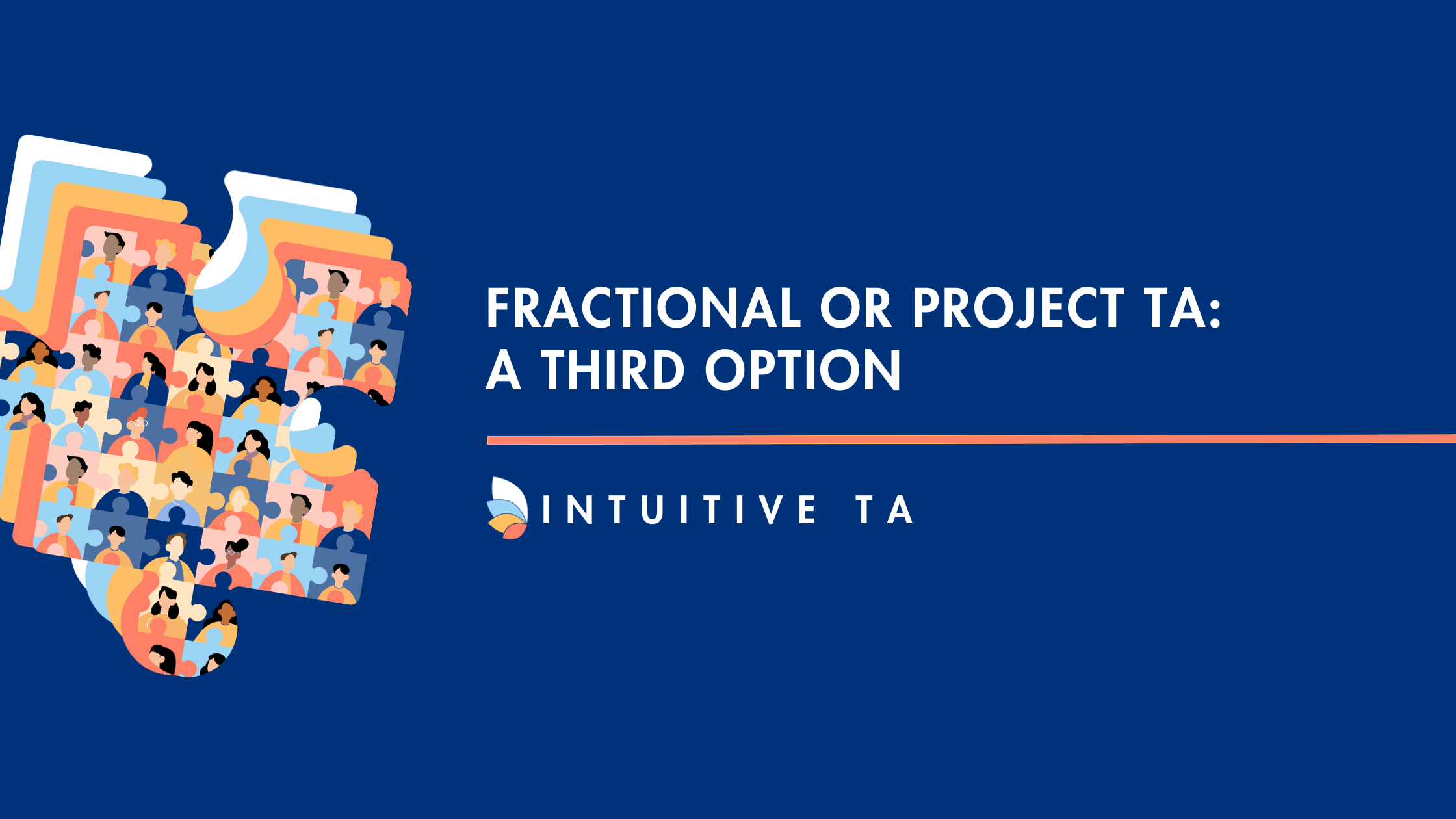Beyond the traditional generalist vs. specialist debate, fractional or project-based TA is becoming a popular model for scale-ups in Asia.
WHEN IT WORKS BEST
Short, high-volume sprints: e.g. launching a new product line or building a regional sales team in three months.
Market entry projects: entering a new country where you need quick traction but don’t want to commit to a permanent TA headcount.
Specialist bursts of expertise: e.g. hiring 20 engineers in Vietnam or a compliance team in Japan, where local knowledge and language skills are critical.
BENEFITS
Flexibility: Scale resources up or down based on hiring cycles.
Cost control: Pay for talent acquisition capacity only when you need it, without adding permanent headcount.
Speed: Project TA teams often bring ready-made playbooks and networks.
Risk reduction: Helps avoid burning out a lean internal TA team during hiring spikes.
Fractional TA sits neatly between in-house recruiters and agencies, giving scale-ups a way to stay lean while still meeting aggressive growth targets.
REGIONAL CONSIDERATIONS IN ASIA
When building TA teams across Asia, start-ups must account for:
Language diversity: Recruiting in Japan, China, Korea, or Indonesia often requires native language capability. This can push companies toward specialists by region, even if they remain generalists by function.
Cultural nuances: Candidate expectations differ widely (e.g. speed of process in Singapore vs. relationship-building in Japan). Recruiters must adapt their style, which favours generalists with strong cross-cultural skills.
Where corporate functions sit: Many start-ups centralize HR, Finance, and Legal in regional hubs (often Singapore or Hong Kong). A specialist for corporate functions can work well here, while local markets rely more on generalists.
Talent availability: In emerging markets with smaller talent pools, generalists may be more realistic, while in mature hubs with large candidate populations, specialisation pays off.
FINDING THE RIGHT BALANCE
For most growth start-ups, the answer is not either/or, but a phased approach:
Early stage (0–200 employees): Build around strong generalists who can flex and adapt. Use agencies or project TA for highly specialised or urgent needs.
Growth stage (200–500 employees): Introduce functional specialists where hiring demand is concentrated (e.g. tech or sales), while keeping generalists to cover breadth.
Scale-up stage (500+ employees): Move toward a hybrid model: regional generalists to handle local diversity, functional specialists in hubs, and fractional/project TA for high-volume bursts.
CONCLUSION
Specialists and generalists both bring value. For growth start-ups in Asia, the smartest TA leaders add a third lever: fractional/project TA. This hybrid approach allows them to stay lean, scale quickly when needed, and remain competitive in a region with multiple languages, cultures, and talent complexities.
The right mix ensures you get the best of all worlds: specialists for depth, generalists for agility, and project TA for scale.


